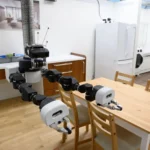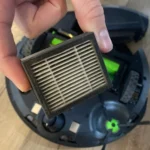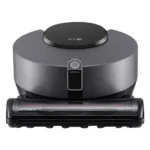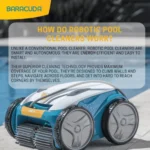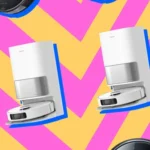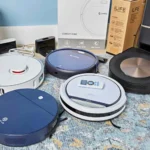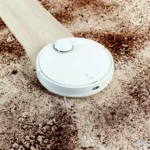When it comes to keeping our homes clean, vacuuming is an essential task that we all have to manage. However, with a variety of options available on the market, choosing the best vacuum can be perplexing. One of the most important factors to consider when selecting a vacuum is energy consumption. In recent years, smart vacuums have emerged as a popular alternative to traditional vacuums. But how do these new machines compare in terms of energy usage? In this article, we’ll explore the differences between the energy consumption of traditional vacuums and smart vacuums. We’ll also discuss the benefits of using smart vacuums and the future of this technology. So, let’s dive in!
Evaluating Energy Consumption
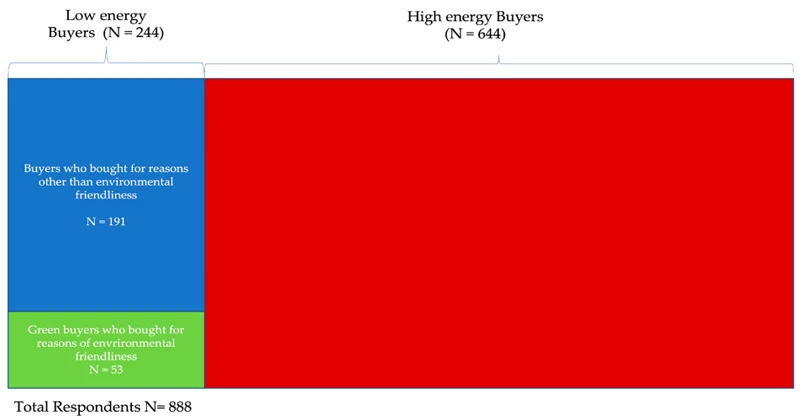
As the world becomes more environmentally-conscious, evaluating energy consumption has become a key factor in determining the efficiency and sustainability of various household appliances. When it comes to vacuum cleaners, the amount of energy used can vary greatly between traditional models and their smarter counterparts. It’s important to understand how each type of vacuum consumes energy to make an informed decision about which is best for your home. By comparing the energy usage of traditional vacuums versus smart vacuums, we can gain insight into the energy-saving benefits of newer technology. Let’s take a closer look at the differences and benefits of both types of vacuums. For tips on how to reduce energy consumption with smart vacuums, check out our smart vacuum energy tips article.
Traditional Vacuums
When it comes to evaluating the energy consumption of vacuums, it’s important to take a closer look at the two main types: traditional vacuums and smart vacuums. Traditional vacuums are the most common type of vacuum and have been around for decades. These vacuums use a motorized fan to create suction and pull dirt and debris off of floors and other surfaces. While traditional vacuums can be effective at cleaning, they are not as energy-efficient as newer smart vacuums.
The energy consumption of traditional vacuums varies depending on the make and model. However, on average, a vacuum with a 12-amp motor will consume around 1,440 watts of power per hour. This can add up quickly, especially if you vacuum frequently. According to the United States Department of Energy, the average American household vacuums for two hours a week. If you have an older vacuum that is less energy-efficient, you could be using a lot more energy than you realize.
To put it in perspective, let’s say you have a traditional vacuum that uses 1,440 watts of power per hour. If you vacuum for two hours a week, that’s 2,880 watts of power used per week. Over the course of a year, that’s 149,760 watts of power used just for vacuuming. That’s a lot of energy!
Traditional vacuums are not as energy-efficient as newer smart vacuums, and they can be expensive to operate over the long run. Smart vacuums are a great alternative for those who want to save energy and money on their electricity bills. In the next section, we’ll take a closer look at how smart vacuums stack up when it comes to energy consumption.
Smart Vacuums
When it comes to energy consumption, smart vacuums are ahead of traditional vacuums. Here are some reasons why:
1. Power Management
Smart vacuums are designed to consume less energy by utilizing power management systems. These systems adjust the suction power to the type of floor being cleaned. For instance, the smart vacuum might reduce suction power when cleaning hardwood floors compared to when it is cleaning a carpeted floor. Additionally, some models have sensors that detect dirt and debris, and only increase suction power in areas that require additional cleaning. This helps to save energy, and can even extend the battery life of the vacuum.
2. Efficient cleaning
The advanced technology used in smart vacuums make them more efficient cleaners. Robotic vacuums, for example, have the ability to map out a room and clean every inch of the floor. They can also detect any obstacles in the room and navigate around them, making cleaning easier and faster. Additionally, some models have the ability to clean edges and corners, which are typically hard-to-reach areas for traditional vacuums.
3. Time-saving features
Smart vacuums come with features that help to save time and energy. For instance, some models are equipped with scheduling capabilities, which means they can be programmed to start cleaning at specific times. This is particularly useful for people who are constantly on the go and don’t have time to manually clean their homes. Some models have the ability to detect when they are low on battery and automatically return to their docking station to recharge.
Smart vacuums are more energy-efficient compared to traditional vacuums. With power management systems, efficient cleaning and time-saving features, these vacuums help to save energy and time. For more energy-saving tips with smart vacuums, check out our article on Smart Vacuum Energy Tips.
Benefits of Smart Vacuums
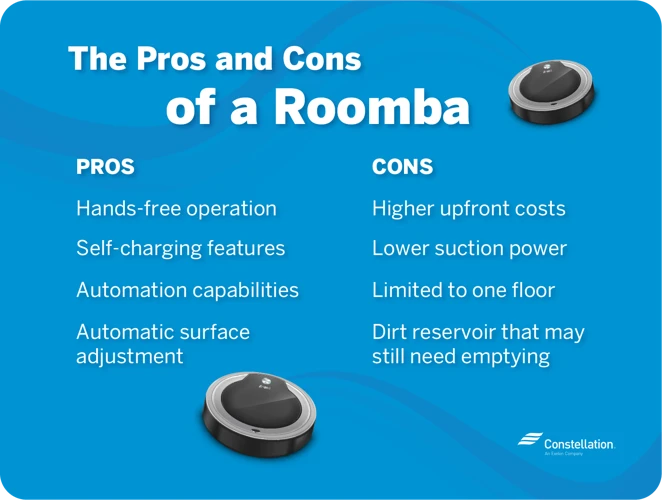
When it comes to cleaning our homes, everyone wants to do it efficiently and effectively, while using as little energy as possible. This is where smart vacuums come in. These high-tech gadgets have taken the cleaning industry by storm and offer a range of benefits that traditional vacuums simply can’t match. With their advanced technology and energy-saving capabilities, smart vacuums are quickly becoming the preferred choice for many homeowners. Let’s take a closer look at how smart vacuums are revolutionizing the way we clean our homes and why they are gaining in popularity. From maximizing efficiency with battery power to enhancing cleaning abilities with advanced technology, smart vacuums have a lot to offer. We will explore these benefits in detail. We will dive into some of the high-volume keywords that will help people interested in the topic of smart vacuums discover our article. If you are wondering how much energy can smart vacuums actually save, you can also check out our previous article on smart vacuum energy saving.
Maximizing Efficiency with Battery Power
When it comes to energy consumption, smart vacuums have a clear advantage over traditional vacuums. One of the main reasons for this is the use of battery power. Let’s take a closer look at how smart vacuums maximize efficiency with battery power.
Battery life: Smart vacuums are designed with rechargeable batteries that can last for extended periods. They use Lithium-ion batteries, which have a higher energy density compared to the Nickel-cadmium batteries used in traditional vacuums. This means that smart vacuums can clean for longer periods on a single charge.
Efficient cleaning: Smart vacuums use advanced sensors to navigate through the home and avoid obstacles. This not only saves time but also reduces the energy consumed by the vacuum. Sensors help the vacuum to detect the most efficient cleaning path, reducing the need to go back over the same areas. Smart vacuums also have the ability to adjust suction power according to the type of floor or surface they are cleaning, reducing energy consumption and ensuring efficient cleaning.
Low energy consumption: Smart vacuums are designed to consume less power than traditional vacuums. They are programmed to shut off automatically when not in use, reducing standby power consumption. This means that they use less energy when charging and when not in use, which helps to reduce electricity consumption over time.
Remote monitoring: Some smart vacuums come with an app that allows you to monitor the battery level and cleaning progress remotely, providing valuable information that can help you manage your energy consumption more effectively.
Smart vacuums maximize efficiency with battery power in several ways. They use Lithium-ion batteries that provide longer battery life, have advanced sensors that enable efficient cleaning, consume less power, and can be monitored remotely. All these factors contribute to a lower overall energy consumption and reduce the environmental impact of vacuuming.
Enhancing Cleaning Abilities with Advanced Technology
As mentioned earlier, smart vacuums come equipped with advanced technology that enhances their cleaning abilities. Below are some of the features that make them superior in performance to traditional vacuums:
- Mapping Sensors: Smart vacuums are equipped with mapping sensors that help them to navigate around your home efficiently. They create a floor plan of the house, which they use to plan their routes and avoid obstacles. By doing this, smart vacuums save energy and time during cleaning.
- Automatic Charging: Smart vacuums come with automatic charging capabilities that ensure that they always stay charged while in use. Once the battery levels are low, the vacuum returns to the docking station to recharge itself automatically, and then resume cleaning.
- Smartphone Connectivity: Some smart vacuums come with smartphone connectivity, allowing you to control them remotely using your phone. This technology feature enables you to turn the vacuum on/off, schedule cleaning times, or change cleaning modes from anywhere.
- HEPA Filters: Smart vacuums have HEPA filters that trap microscopic allergens and dust particles as they clean. This advanced feature improves indoor air quality and makes the environment healthier for everyone living in the house.
- Virtual Boundaries: With the use of sensors, smart vacuums can detect virtual boundaries and clean within those specified limits. This feature is particularly useful if you don’t want the vacuum to clean a particular area – specifying a border on the app will instruct the vacuum to avoid that area.
With these advanced features, smart vacuums are not only more energy-efficient but also more effective in cleaning than traditional vacuums. They ensure that your home is free from dust, dirt, and allergens, while minimizing energy consumption.
The Future of Smart Vacuums
The future of smart vacuums is bright and promising. With the advancements in technology, smart vacuums are becoming more sophisticated and efficient in their cleaning abilities. They are quickly becoming a staple in modern households as they offer a lot of convenience and ease of use.
Improved Cleaning Capabilities: In the future, smart vacuums will be equipped with even more advanced technology, allowing them to clean with more precision and thoroughness. They will be able to map out a room and clean it in a more organized and efficient manner, ensuring that all areas are covered. Additionally, they will be equipped with sensors that will detect dirt and debris automatically, making sure to deep clean any areas that require it.
Integration with Smart Home Systems: Smart vacuums are already compatible with many smart home systems, but in the future, they will become even more integrated. This means that users will be able to control their vacuum using their voice or their smartphone, making it even easier to keep their homes clean. The days of manually vacuuming your floors will soon be a thing of the past.
Improved Battery Life: One of the biggest drawbacks of owning a smart vacuum is the limited battery life. However, in the future, this will no longer be an issue as smart vacuums will be equipped with more powerful and longer-lasting batteries. This will allow them to clean larger areas without needing to recharge, making them even more efficient.
The future of smart vacuums looks very promising. As technology continues to advance, smart vacuums will become even more sophisticated and efficient in their cleaning abilities. They will be able to clean homes more thoroughly and efficiently, while also providing added convenience and ease of use for homeowners.
Conclusion
After evaluating the energy consumption of traditional vacuums and smart vacuums, it is clear that smart vacuums have a significant advantage in terms of efficiency and sustainability.
While traditional vacuums may seem like a cheaper option initially, their energy consumption over time can result in higher costs and a larger carbon footprint. Smart vacuums, on the other hand, use advanced technology to operate at a higher level of efficiency, ultimately saving energy and money.
Battery power allows smart vacuums to clean more effectively without being tethered to a power outlet, meaning they can clean larger areas with less energy. Additionally, the advanced technology in smart vacuums allows for customization to suit various cleaning needs, further optimizing cleaning efficiency.
Looking to the future, it is clear that the popularity of smart vacuums will only continue to grow. With options for customization, enhanced cleaning abilities, and eco-friendly energy consumption, it is not surprising that smart vacuums are becoming the preferred option for eco-conscious consumers.
In conclusion, the benefits of smart vacuums in terms of energy consumption, efficiency and sustainability far outweigh the advantages of traditional vacuums. Choosing a smart vacuum not only benefits the environment, but also provides a more advanced and effective cleaning solution that can save money in the long run. It is time for consumers to embrace the benefits of this smart technology and make the switch to a more eco-friendly cleaning option.
Frequently Asked Questions
What is the difference in energy consumption between traditional vacuums and smart vacuums?
Smart vacuums are generally more energy-efficient compared to traditional vacuums.
How do traditional vacuums consume energy?
Traditional vacuums consume energy through a cord that is plugged into a power outlet.
Do smart vacuums use less energy than traditional vacuums?
Yes, smart vacuums are designed to be more energy-efficient and use less power compared to traditional vacuums.
What makes smart vacuums more energy-efficient than traditional vacuums?
Smart vacuums utilize advanced technology such as efficient motors and smart sensors to reduce energy consumption while still providing excellent cleaning performance.
Can smart vacuums work without electricity?
No, smart vacuums still require a power source to operate. However, some models use rechargeable batteries as their power source, which are more energy-efficient compared to traditional vacuums that use cords.
Does the type of flooring impact the energy consumption of a vacuum?
Yes, the type of flooring can impact the energy consumption of a vacuum because some materials, such as shag carpets, require more energy to clean compared to hardwood floors.
Do smart vacuums have longer battery life compared to traditional vacuums?
Yes, some smart vacuums have longer battery life compared to traditional vacuums because they are designed to be more energy-efficient and use rechargeable batteries as their power source.
How does a smart vacuum track its energy consumption?
Smart vacuums use sensors and smart technology to track and monitor their energy consumption. They can also provide real-time data to users, allowing them to monitor energy consumption and adjust the vacuum’s settings to maximize efficiency.
Are smart vacuums more expensive than traditional vacuums?
Generally, smart vacuums are more expensive compared to traditional vacuums because of their advanced features and technology. However, they can be more cost-effective in the long run due to their energy-efficient design.
Can smart vacuums help reduce energy costs in the long run?
Yes, smart vacuums can help reduce energy costs in the long run because they consume less energy compared to traditional vacuums. They can also help maximize energy efficiency, which can lead to lower electricity bills over time.

